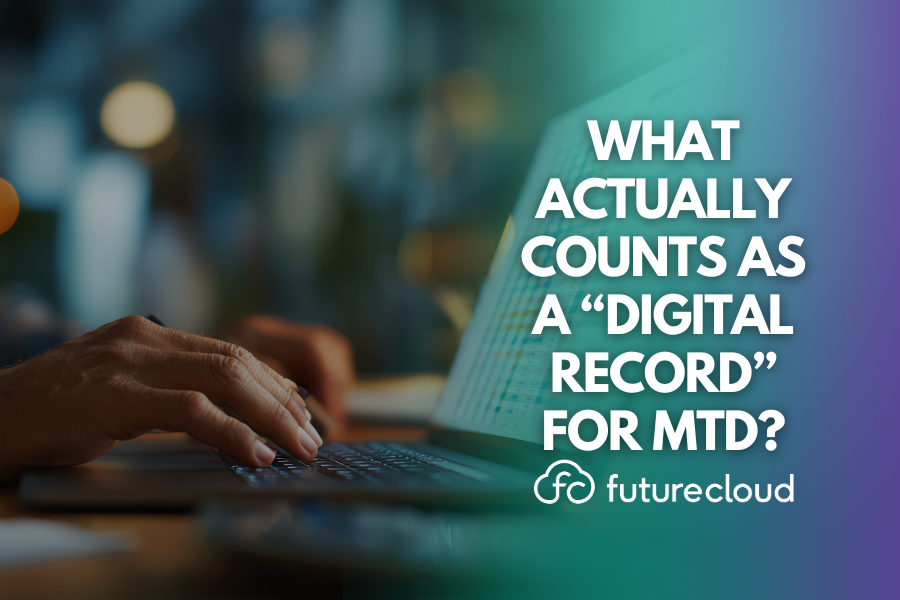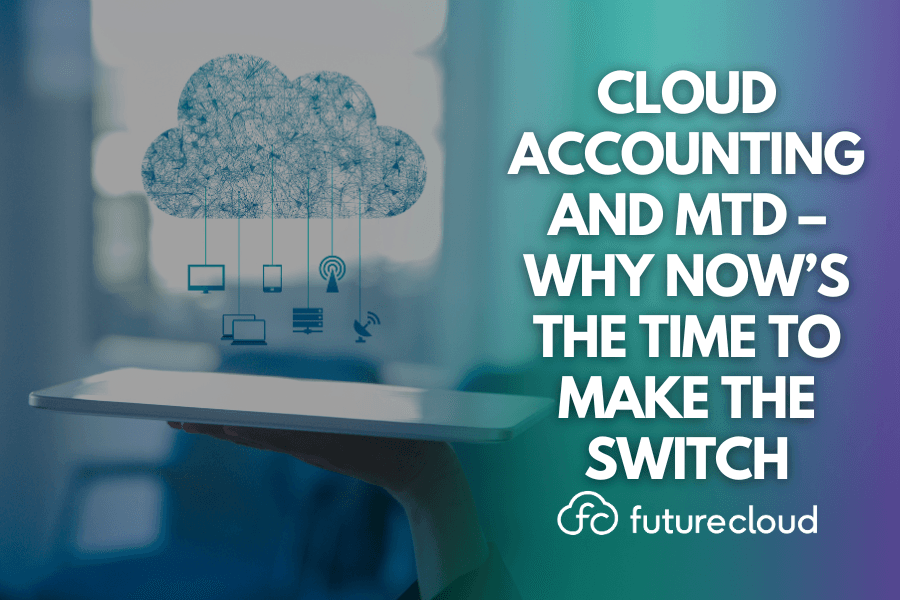If you’ve heard us talking about Making Tax Digital (MTD), you’ll know it’s all about moving away from paper-based bookkeeping and making the switch to digital. But one of the most common questions we hear is, “what actually counts as a digital record for MTD?”
It’s a really fair question, especially with the rules expanding for self-employed individuals and landlords over the next couple of years. So, we’ve broken it down in a simple way to help you understand what HMRC expects and how to stay compliant.
What Is a Digital Record for MTD?
A digital record is just a record of your business income and expenses stored in a digital format. That means using software rather than a shoebox of receipts or handwritten notes. And it’s more than just spreadsheets!
A digital record should show the date of the transaction, how much it was for, and what it relates to. That’s it… Simple, structured information stored electronically.
Here are a few everyday examples:
- You record a sale in your bookkeeping app on the day it happens.
- You enter the cost of materials straight into accounting software rather than keeping the receipt in your glovebox.
- Rent received from a property is logged in your digital system, not just your bank statement.
And don’t worry, you can still keep paper receipts if you want to. You just need the actual record of the transaction stored digitally.
Approved Ways to Keep Digital Records for MTD Compliance
The key is that your records must be kept in software or a digital system that can connect to HMRC for MTD.
You can use:
- Cloud accounting software (see our previous blog here to help you choose the best cloud software for your business)
- Desktop accounting software (as long as it’s MTD-compatible)
- A spreadsheet only if it links to approved MTD software
If you’re using more than one system, for example, a spreadsheet and a bookkeeping app, they must link together digitally. Copying and pasting figures between systems won’t meet MTD rules anymore once your MTD start date kicks in.
What Doesn’t Count as a Digital Record for MTD
Here’s where some people fall into the trap.
The following will not count as digital record-keeping for MTD:
- Writing figures in a notebook
- Keeping all receipts in a drawer and sorting them at year-end
- A spreadsheet that isn’t linked to MTD-compatible software
- Manually typing or copy-pasting information between systems
Scanning receipts into a folder on your computer is also not enough on its own. Scans are useful back-ups, but the record itself must be stored digitally in a structured way.
Why Digital Record-Keeping Matters for MTD
Even if you’re not submitting digital tax updates yet, getting into the habit of digital record-keeping now makes life easier when MTD becomes mandatory for you.
It means:
- Less stress at year-end
- Fewer errors and lost receipts
- Better visibility over your business numbers
- You’ll be ready long before the rules kick in
And of course, if you’re already VAT-registered and using MTD for VAT, most of this will already feel familiar, the same mindset applies to self-employed and rental income.
How to Prepare for Making Tax Digital Now
Even if your MTD start date hasn’t arrived yet, there’s real value in getting prepared ahead of time. Here’s what we recommend:
- Start logging income and expenses digitally now, even if you’re not submitting quarterly updates yet
- Try out digital software and get into a routine that’s easy to maintain
- Keep digital records regularly rather than waiting until year-end
- Familiarise yourself with the system before it becomes compulsory
A small shift now means a smooth transition later, without the pressure of a looming deadline.
Do You Need an Accountant for MTD?
While MTD encourages businesses to use digital tools, it doesn’t remove the need for professional support. In fact, most business owners find it easier, quicker, and far less stressful when working with an accountant who understands the rules and can guide them through the transition properly.
An accountant (us) will help you:
- Choose the right MTD-compatible software
- Set up your digital record-keeping correctly from day one
- Avoid mistakes that could cause future HMRC issues
- Stay compliant with MTD as rules evolve
- Save time, stress, and potentially money through better bookkeeping habits
Want to Make Digital Record-Keeping Easier?
Making the switch to digital records doesn’t have to be overwhelming. With the right support and the right software, most clients find it becomes second nature very quickly and actually makes running their business easier.
If you’d like help setting up digital record-keeping, understanding MTD, or choosing the best software for your business, our team would be happy to guide you through it step-by-step.
You don’t need to navigate Making Tax Digital alone, that’s what we’re here for.
Or email us on info@future-cloud.co.uk
And don’t forget to follow us on social media for the latest updates, tips, and more!

